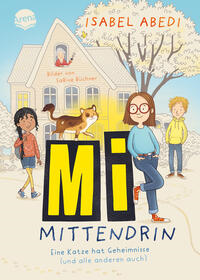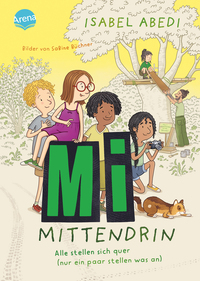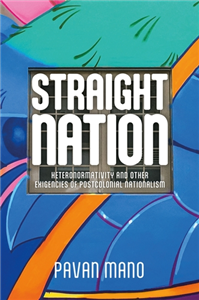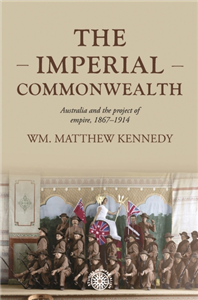Your Search Results
-
Promoted ContentMarch 2009
Kleine Entdecker – Wie kommt der Strom in die Steckdose?
Über Elektrizität
by Kim, Mi-Gyeong / Deutsch Zaborowski, Hans-Jürgen
-
Promoted ContentMarch 2009
Kleine Entdecker – Wie passt der Elefant ins Ei?
Die embryonale Entwicklung der Lebewesen
by Kim, Mi-Gyeong / Illustriert von Lee, Geun-Jeong; Koreanisch Zaborowski, Hans-Jürgen
-
 Trusted Partner
March 2008
Trusted Partner
March 2008Kleine Entdecker – Wohin reist der Blütenstaub?
Wie Pflanzen sich vermehren
by Kim, Mi-Gyeong / Koreanisch Zaborowski, Hans-Jürgen; Illustriert von Lee, Yeong-Rim
-
 Trusted Partner
Humanities & Social SciencesJanuary 2025
Trusted Partner
Humanities & Social SciencesJanuary 2025England’s military heartland
Preparing for war on Salisbury Plain
by Vron Ware, Antonia Dawes, Mitra Pariyar, Alice Cree
A considered investigation of a long-standing army base's impact on the British countryside. What is it like to live next door to a British Army base? Beyond the barracks provides an eye-opening account of the sprawling military presence on Salisbury Plain, drawing on a wide range of voices from both sides of the divide. Targeted for expansion under government plans to reorganise the UK's global defence estate, the Salisbury 'super garrison' offers a unique opportunity to explore the impact of the military footprint in a particular place. But this is no ordinary environment: as well as being the world-famous site of Stonehenge, the grasslands of Salisbury Plain are home to rare plants and wildlife. How does the army take responsibility for conserving this unique landscape as it trains young men and women to use lethal weapons? Are its claims that its presence is a positive for the environment anything more than propaganda? Beyond the barracks investigates these questions against the backdrop of a historic landscape inscribed with the legacy of perpetual war.
-
 Trusted Partner
February 2025
Trusted Partner
February 2025Mi mittendrin. Eine Katze hat Geheimnisse (und alle anderen auch)
Zauberhaftes Kinderbuch von Bestsellerautorin Isabel Abedi für alle ab 9 Jahren mit ganz viel Herz, Katze und einem Hauch Magie
by Isabel Abedi, SaBine Büchner
Mi lügt fast nie – aber heute will ihr niemand glauben. Zu Hause beschuldigt Mama sie, ihrer übelsten Nachbarin eine Regenbogenzwergin ins Gartenbeet gepflanzt zu haben. In der Schule behauptet ihr Lehrer, dass sie schummelt. Unfair! Als sich Mi auf Polly (so heißt ihr Bike) die Wut aus dem Leib strampelt, bricht ein gigantisches Gewitter los. So landet sie bei Kafka, einem geheimnisvollen Laden mit einem noch geheimnisvolleren Inhaber, der Mi den geheimnisvollsten Kaffeesack mit auf den Heimweg gibt. Und dann ist Mi plötzlich mittendrin in Geschichten, die sie selbst kaum glauben kann. Warum schleicht sich ihre große Schwester nachts heimlich raus? Was sind das auf einmal für seltsame Gerüche im Haus? Und was verbirgt Uroma Urmel? Die Geheimnisse zu lüften, ist Mis Mission. Zum Glück hat sie Kafkatz, Roya und Isso … oder haben die etwa auch was zu verbergen? Der Auftakt einer neuen Reihe von Bestseller-Autorin Isabel Abedi, die alle ab 9 Jahren mit auf die Reise nimmt. Es geht um Freundschaft und Familie , um Kinderrechte – und um das kleine Glück , das unser Leben liebenswerter macht. Und mittendrin ist Mi – die man nach dieser Geschichte nicht mehr missen möchte.
-
 Trusted Partner
February 2026
Trusted Partner
February 2026Mi mittendrin (2). Alle stellen sich quer (nur ein paar stellen was an)
Zauberhaftes Kinderbuch von Bestsellerautorin Isabel Abedi mit einem Hauch Magie, einem spannenden Fall und jeder Menge Freundschaft. Perfekt für alle ab 9 Jahren!
by Isabel Abedi, SaBine Büchner
Zauberhaftes Sommerabenteuer mit einer Riesenportion Freundschaft, einer Prise Krimi und einem Hauch Magie So sollen Sommerferien sein: ein ultrablauer Himmel, eine ultrawarme Sonne und ein ultraneues Wohnwagen-Café, das Mis Wahl-Opa Emil Knopf neu eröffnet. Das Allerbeste: Mi darf mitmachen, zusammen mit ihrer Freundin Roya, ihren Freunden Isso und Elliot und natürlich ihrer Katze Kafkatz, die stets den richtigen Riecher hat.Das Allerschlimmste: Mi hat einen Albtraum und der droht wirklich wahr zu werden: Die schönen Schrebergärten ringsum sollen dem Erdboden gleichgemacht werden und noch dazu wird Mis Nachbarin Frau Wagner angefahren. So ist Mi mit ihren Lieben mittendrin in einem großen Sommerabenteuer: auf der Spur von vierundzwanzig ungeahnten Fakten, einem feigen Fahrer und einem raschelnden Rätsel. Denn manchmal kommt das Glück auf leisen Pfoten ... Band zwei der neuen Reihe von Bestsellerautorin Isabel Abedi, die alle ab 9 Jahren mit in einen großen Sommer nimmt. Es geht um Freundschaft und Familie, ums Zusammenhalten und auch mal Querstellen – und darum, dass die Kleinsten manchmal das Größte bewirken können. Und mittendrin ist wieder Mi – eine Freundin, die das Leben liebenswerter macht.
-
 Trusted Partner
Humanities & Social SciencesMarch 2025
Trusted Partner
Humanities & Social SciencesMarch 2025Straight nation
Heteronormativity and other exigencies of postcolonial nationalism
by Pavan Mano
In Straight Nation, Pavan Mano reveals the logic of straightness that sits at the heart of postcolonial nationalism in Singapore. Mano rejects the romantic notion of the nation as a haven of belonging, showing it to be a relentless force that is allied with heteronormativity to create a host of minoritized and xenologized figures. Through meticulous exploration and close reading of a swathe of texts, Mano unveils the instrumental role of sexuality in structuring the national imaginary. The book adroitly demonstrates how queerness is rendered foreign in postcolonial Singapore and functions alongside technologies of "race", gender, and class. A provocative critique of narrow contemporary identity politics and its concomitant stymying of a more ambitious political critique, Straight Nation sets out an argument that moves beyond the negativity of traditional critique into a space of (re)thinking, (re)building and (re)imagining.
-
 Trusted Partner
Trusted Partner
-
 Trusted Partner
Humanities & Social SciencesOctober 2022
Trusted Partner
Humanities & Social SciencesOctober 2022Bankruptcy, bubbles and bailouts
by Aeron Davis, Karel Williams
-
 Trusted Partner
Humanities & Social SciencesJuly 2023
Trusted Partner
Humanities & Social SciencesJuly 2023The imperial Commonwealth
Australia and the project of empire, 1867-1914
by Wm. Matthew Kennedy
From the late 1800s to the early 1900s, Australian settler colonists mobilised their unique settler experiences to develop their own vision of what 'empire' was and could be. Reinterpreting their histories and attempting to divine their futures with a much heavier concentration on racialized visions of humanity, white Australian settlers came to believe that their whiteness as well as their Britishness qualified them for an equal voice in the running of Britain's imperial project. Through asserting their case, many soon claimed that, as newly minted citizens of a progressive and exemplary Australian Commonwealth, white settlers such as themselves were actually better suited to the modern task of empire. Such a settler political cosmology with empire at its center ultimately led Australians to claim an empire of their own in the Pacific Islands, complete with its own, unique imperial governmentality.
-
 Trusted Partner
Humanities & Social SciencesJune 2026
Trusted Partner
Humanities & Social SciencesJune 2026Anti-racism in Britain
by Saffron East, Grace Redhead, Theo Williams
-
 Trusted Partner
The ArtsSeptember 2024
Trusted Partner
The ArtsSeptember 2024The renewal of post-war Manchester
Planning, architecture and the state
by Richard Brook
A compelling account of the project to transform post-war Manchester, revealing the clash between utopian vision and compromised reality. Urban renewal in Britain was thrilling in its vision, yet partial and incomplete in its implementation. For the first time, this deep study of a renewal city reveals the complex networks of actors behind physical change and stagnation in post-war Britain. Using the nested scales of region, city and case-study sites, the book explores the relationships between Whitehall legislation, its interpretation by local government planning officers and the on-the-ground impact through urban architectural projects. Each chapter highlights the connections between policy goals, global narratives and the design and construction of cities. The Cold War, decolonialisation, rising consumerism and the oil crisis all feature in a richly illustrated account of architecture and planning in post-war Manchester.
-
 Trusted Partner
Trusted Partner
-
 Trusted Partner
Humanities & Social SciencesApril 2020
Trusted Partner
Humanities & Social SciencesApril 2020Representation, recognition and respect in world politics
by Constance Duncombe
-
 Trusted Partner
Humanities & Social SciencesJuly 2021
Trusted Partner
Humanities & Social SciencesJuly 2021Post-everything
An intellectual history of post-concepts
by Herman Paul, Adriaan van Veldhuizen
Postmodern, postcolonial and post-truth are broadly used terms. But where do they come from? When and why did the habit of interpreting the world in post-terms emerge? And who exactly were the 'post boys' responsible for this? Post-everything examines why post-Christian, post-industrial and post-bourgeois were terms that resonated, not only among academics, but also in the popular press. It delves into the historical roots of postmodern and poststructuralist, while also subjecting more recent post-constructions (posthumanist, postfeminist) to critical scrutiny. This study is the first to offer a comprehensive history of post-concepts. In tracing how these concepts found their way into a broad range of genres and disciplines, Post-everything contributes to a rapprochement between the history of the humanities and the history of the social sciences.
-
 Trusted Partner
Humanities & Social SciencesJanuary 2025
Trusted Partner
Humanities & Social SciencesJanuary 2025England’s military heartland
Preparing for war on Salisbury Plain
by Vron Ware, Antonia Lucia Dawes, Mitra Pariyar, Alice Cree
What is it like to live next door to a British Army base? England's military heartland provides an eye-opening account of the sprawling military presence on Salisbury Plain, drawing on a wide range of voices from both sides of the divide. Targeted for expansion under government plans to reorganise the UK's global defence estate, the Salisbury 'super garrison' offers a unique opportunity to explore the impact of the military footprint in a particular place. But this is no ordinary environment: as well as being the world-famous site of Stonehenge, the grasslands of Salisbury Plain are home to rare plants and wildlife. How does the army take responsibility for conserving this unique landscape as it trains young men and women to use lethal weapons? Are its claims that its presence is a positive for the environment anything more than propaganda? This book investigates these questions against the backdrop of a historic landscape inscribed with the legacy of perpetual war.
-
 Trusted Partner
Humanities & Social SciencesOctober 2023
Trusted Partner
Humanities & Social SciencesOctober 2023The illusion of the Burgundian state
by Élodie Lecuppre-Desjardin, Christopher Fletcher
On 25 January 1474, Charles the Bold, duke of Burgundy, appeared before his subjects in Dijon. Robed in silk, gold and precious jewels and wearing a headpiece that gave the illusion of a crown, he made a speech in which he cryptically expressed his desire to become a king. Three years later, Charles was killed at the battle of Nancy, an event that plunged the Great Principality of Burgundy into chaos. This book, innovative and essential, not only explores Burgundian history and historiography but offers a complete synthesis about the nature of politics in this region, considered both from the north and the south. Focusing on political ideologies, a number of important issues are raised relating to the medieval state, the signification of the nation under the 'Ancien Regime', the role of warfare in the creation of political power and the impact of political loyalties in the exercise of government. In doing so, the book challenges a number of existing ideas about the Burgundian state.
-
 Trusted Partner
Humanities & Social SciencesMarch 2017
Trusted Partner
Humanities & Social SciencesMarch 2017Popular imperialism and the military, 1850-1950
by John M. MacKenzie
Colonial war played a vital part in transforming the reputation of the military and placing it on a standing equal to that of the navy. The book is concerned with the interactive culture of colonial warfare, with the representation of the military in popular media at home, and how these images affected attitudes towards war itself and wider intellectual and institutional forces. It sets out to relate the changing image of the military to these fundamental facts. For the dominant people they were an atavistic form of war, shorn of guilt by Social Darwinian and racial ideas, and rendered less dangerous by the increasing technological gap between Europe and the world. Attempts to justify and understand war were naturally important to dominant people, for the extension of imperial power was seldom a peaceful process. The entertainment value of war in the British imperial experience does seem to have taken new and more intensive forms from roughly the middle of the nineteenth century. Themes such as the delusive seduction of martial music, the sketch of the music hall song, powerful mythic texts of popular imperialism, and heroic myths of empire are discussed extensively. The first important British war correspondent was William Howard Russell (1820-1907) of The Times, in the Crimea. The 1870s saw a dramatic change in the representation of the officer in British battle painting. Up to that point it was the officer's courage, tactical wisdom and social prestige that were put on display.
-
 Trusted Partner
Trusted Partner
-
 Trusted Partner
Trusted Partner

























